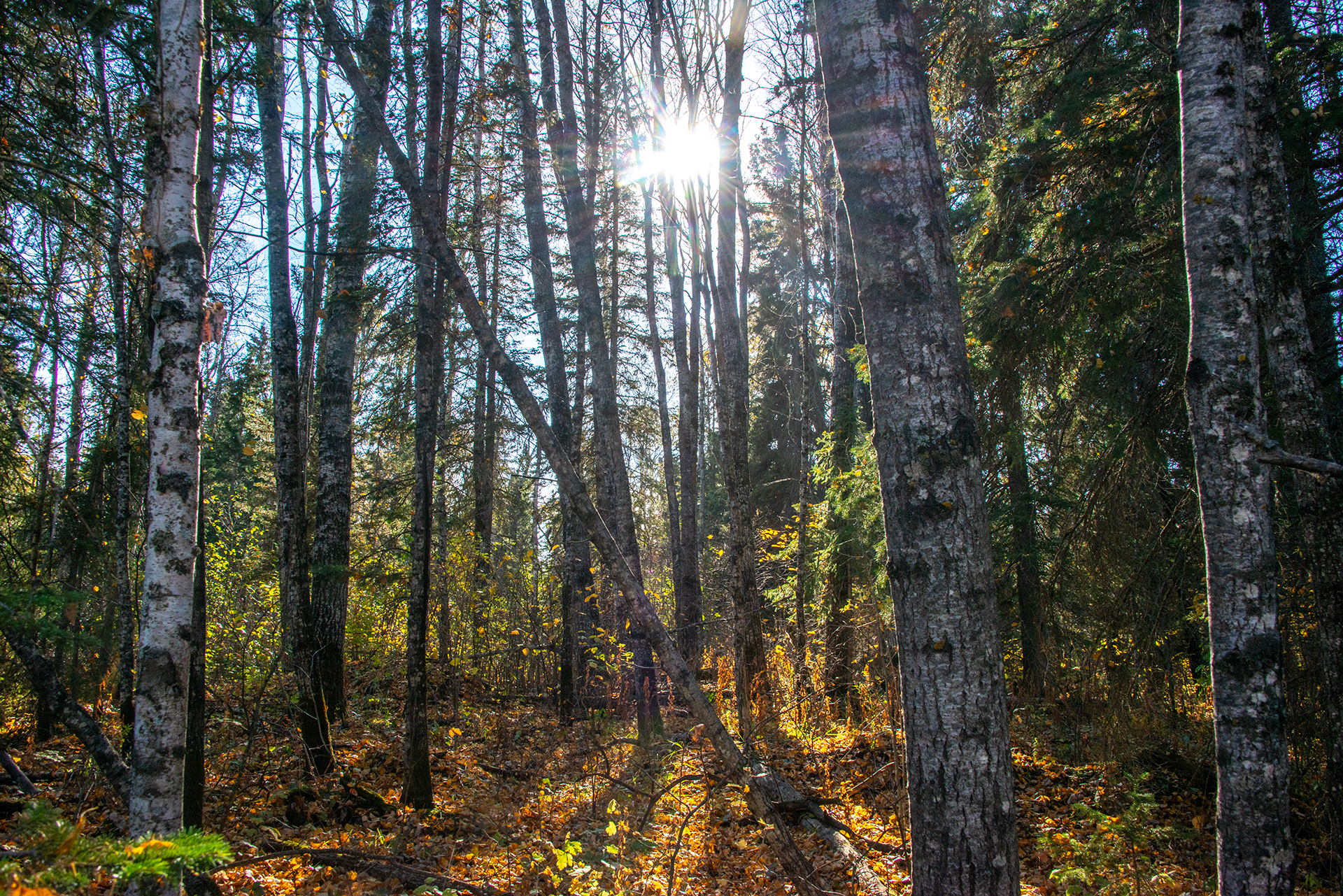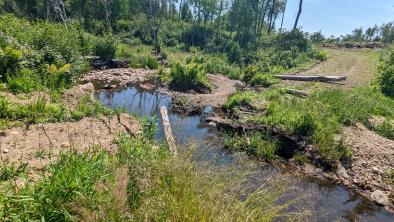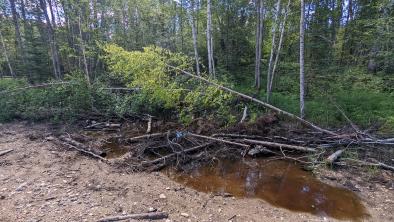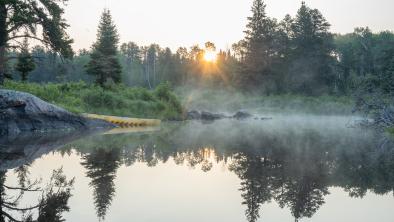Forests given a chance with hard-fought First Nations’ victory

Louisiana-Pacific Corporation's bad forest management proposal shelved as Manitoba government signs logging and forest care agreement with three First Nations.
We’re celebrating success in the Duck Mountain region as three First Nations get a legal say in caring for the forests here in their traditional territories.
On June 28, Wuskwi Sipihk First Nation, Minegoziibeg Anishinaabe and Sapotaweyak Cree Nation signed an agreement about logging in their territory with the Manitoba government. This was the culmination of years of legal action that began in 2019 when Louisiana-Pacific Corporation (L-P) proposed a weak and incomplete 20-year forest management plan.
This was an amazing effort and a commendable result for First Nations. While the text is confidential, the broad strokes of the agreement are First Nations will be involved in all logging plans in the region, L-P’s bad forest management proposal will be shelved and a new one jointly instituted instead, and new protected areas will be established.
For years, the Wilderness Committee has been defending the forests of western Manitoba, sharing our logging field research with First Nations and calling for First Nations to have decision-making authority over their territory. The letters you've written to the government helped earn this victory!
This agreement is an incredible accomplishment by these First Nations. Two First Nations had to each bring legal action against L-P and the Manitoba government twice over the course of three years. The language we’ve heard from them throughout the legal battle and this announcement focussed on positive stewardship of the forests. Meanwhile,the language from the Manitoba government only mentions jobs, with the environment minister nowhere to be seen. Despite the global understanding that we must act on and solve the climate and biodiversity crises, this government is upholding a short-sighted value system from a bygone era. The Duck Mountain region holds some of the biggest, oldest trees in the province, but the Manitoba government only sees it as a wood supply lot for jobs.
Premier Wab Kinew did speak about his commitment to protecting 30 per cent of lands and waters in Manitoba by 2030. The Kettle Hills region has already been mentioned by First Nations for a new protected area.
Thanks to the recently signed agreement, the legal care for the Duck Mountain region is now in the hands of First Nations instead of just multinational logging corporation Louisiana-Pacific. We are hopeful the process of decolonizing Duck Mountain Provincial Park can accelerate, which will include an end to logging inside the last provincial park that is being clearcut in Manitoba.
Again, we thank Wuskwi Sipihk First Nation and Minegoziibeg Anishinaabe for the energy and resources they've spent on four legal cases, gaining better forest care in western Manitoba.


